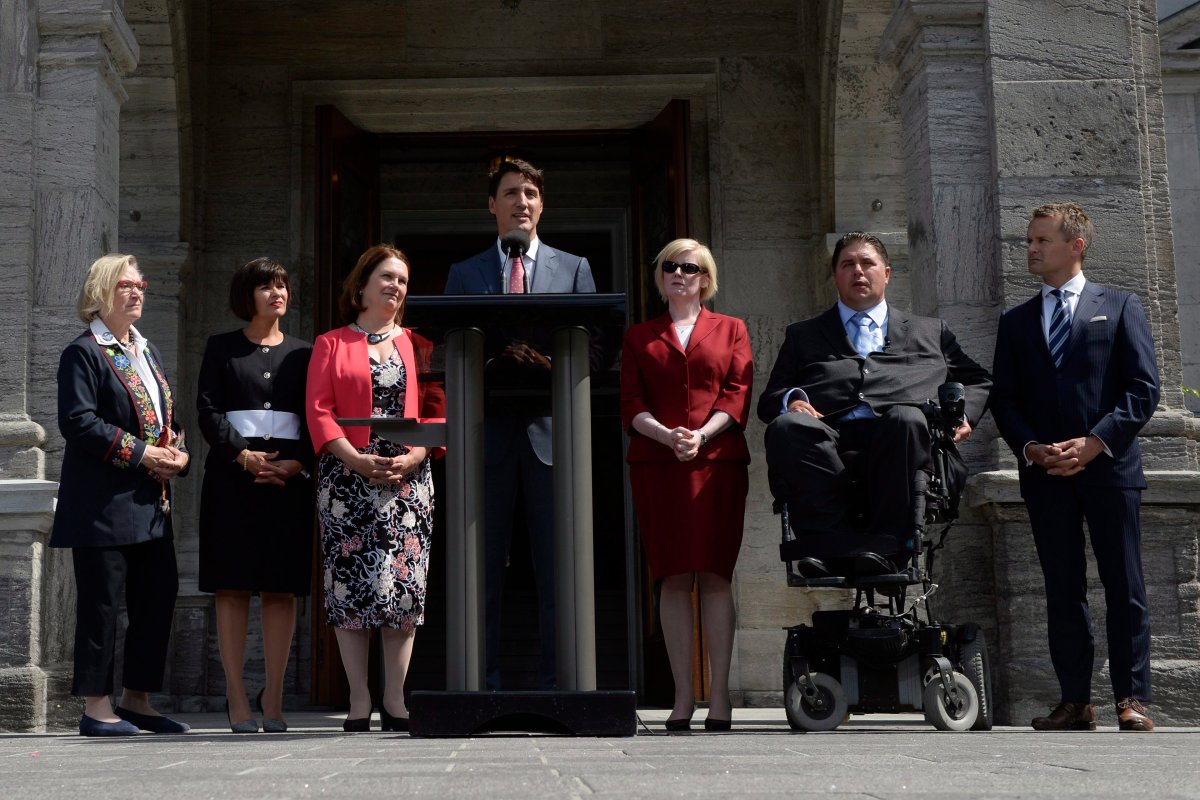Justin Trudeau‘s office released a freshly updated set of ministerial mandate letters on Wednesday, revealing how the prime minister expects his newly shuffled cabinet to tackle sensitive files like the Phoenix pay system debacle and legal cases involving Canada’s Aboriginal Peoples.

Half a dozen new mandate letters have now been made public following a cabinet shuffle last month in Ottawa. Among them are the marching orders for Jane Philpott, Canada’s new minister of Indigenous Services, and Carolyn Bennett, now minister of Crown-Indigenous Relations and Northern Affairs.
Bennett is being told to “work with the Minister of Justice to ensure that both in our dispute resolution mechanisms and litigation we advance positions that are consistent with the resolution of past wrongs towards Indigenous Peoples, promote co-operation over adversarial processes, and move towards a recognition of rights approach.”
The government has faced criticism for ongoing litigation involving Aboriginal Peoples across Canada, including a recent case that saw Ottawa spending over $110,000 to avoid paying for orthodontic care for a young Indigenous girl.
Bennett is now also identified as the lead minister in charge of the government’s National Inquiry into Missing and Murdered Indigenous Women and Girls, which has had a summer full of controversy.
WATCH: ‘We failed’: Trudeau apologizes for Canada’s response to missing, murdered Indigenous women

Also receiving new direction was Public Services and Procurement (PSPC) Minister Carla Qualtrough, who takes on the Phoenix pay system and several other challenging files. Phoenix, which was not mentioned in the original mandate letter to former PSPC minister Judy Foote, is now the top priority listed by Trudeau for Qualtrough.
The letter addressed to the new Health Minister, Ginette Petitpas Taylor, focuses heavily on the ongoing opioid crisis. She is asked to, “complete bilateral agreements with each province and territory outlining the specific action plans and performance indicators that will be used to improve access to mental health and addiction services, and home and community care.”
She is also responsible for ensuring that Canada has a timely and consistent method for reporting opioid-related deaths — in contrast to the current system which varies widely from province to province. She must also consult with provinces, territories and professional bodies to come up with appropriate prescribing guidelines for opioid medication.
Her letter also includes a very specific clause that wasn’t present in the last Health Minister’s mandate letter: “Promote and defend the Canada Health Act to make absolutely clear that extra-billing and user fees are illegal under Canada’s public medicare system, and develop policies in collaboration with provinces and territories to improve verification and recourse mechanisms when instances of non‑compliance arise.”
A spokesperson for the minister said that this was not referring to any specific event or proposal, but that the Prime Minister just wanted to be very clear that user fees were illegal and the minister should watch for them. “The Prime Minister in that sense is encouraging the minister to work with her provincial counterparts to make sure practices like extra-billing and things like that are checked and that she does defend the Canada Health Act.”
Kent Hehr, the new Minister of Sport and Persons with Disabilities, is tasked with developing and introducing new federal accessibility legislation. This legislation should lead to “more consistent experiences of accessibility across Canada.” He is also asked to lead preparations for the upcoming Winter Olympics and Special Olympics in Pyeongchang.
The least-changed ministerial mandate is for the Minister of Veterans Affairs and Associate Minister of National Defence. The new minister, Seamus O’Regan, has mostly the same responsibilities as the old one, though he is asked to improve the “client experience” for veterans accessing benefits and their families as they transition to civilian life.


Comments